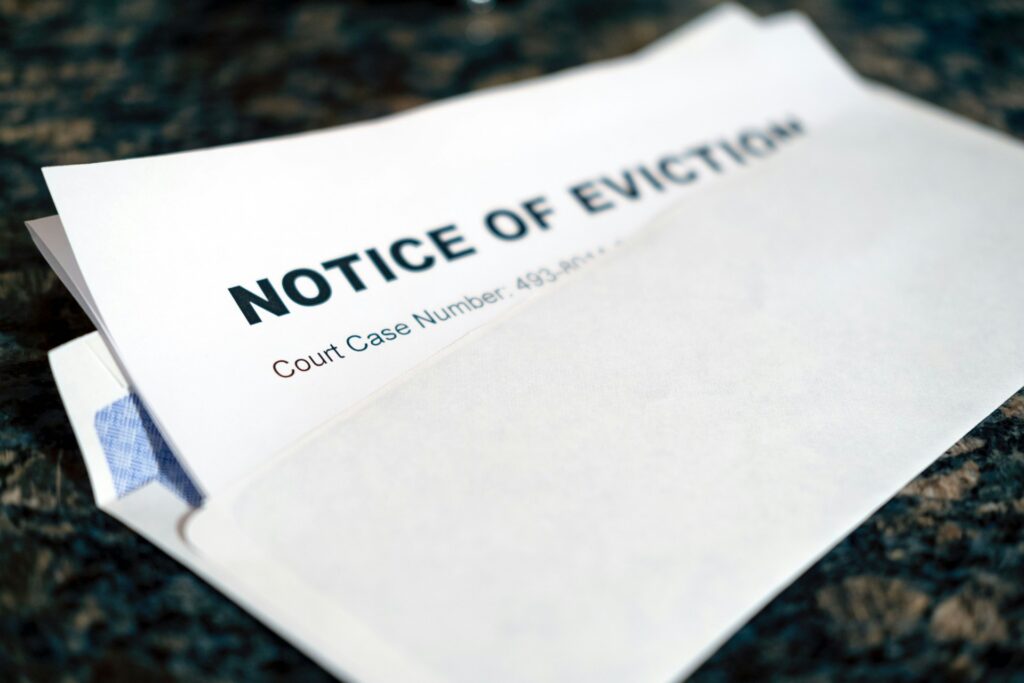What is the 7 Year Inheritance Tax Rule?

Estimated reading time 7 minutes
Any form of tax can be complex, challenging, and at most times, unwanted. But unfortunately, tax, is one of the only certainties in life. That leads us nicely on to inheritance tax, the tax paid on the estate of someone who has passed away.
It can be a confusing tax, filled with rules over what parts of the estate are taxed, how soon it should be paid, and what possible parts of the estate are exempt. Thankfully, there are plenty of experts out there who have done all the background work for you. We would advise, if you are the executor of an estate or a beneficiary, that you always seek professional advice regarding any inheritance tax, so you aren’t caught out later.
Should you be the estate owner, one thing you’ll want to investigate is the 7 year inheritance tax rule, a regulation that allows some typically taxed aspects of the estate to go untaxed, as long as they were gifted at least 7 years before death.
In this blog, we explain how the 7 year inheritance tax rule works so you can ensure your loved ones inherit gifts from your estate without the fear of a huge tax bill looming over them.
What is inheritance tax?
Before we dive into the specifics of the 7 year inheritance tax rule, we’ll clear up what inheritance tax is and how it works.
Inheritance tax, also known as IHT is a form of tax charged against the estate of a person who has died. Paid within six months of death, this one-off tax considers the value of property, possessions and money left behind.
No tax is paid on estates valued up to £325,000 and once the amount exceeds this, tax is calculated at 40% on the amount over £325,000. For example, if the estate was valued at £425,000, inheritance tax will apply to the £100,000 over the £325,000 threshold.
40% of £100,000 is £40,000 meaning that on an estate worth £425,000, a tax of £40,000 would be due.
This amount is in addition to the main residence nil-rate band of £175,000 when the property is being left to children or other direct descendants.
So, what does the 7 year inheritance tax rule mean?
The 7 year rule for inheritance tax relates to the gifts from your estate to beneficiaries. This could be property, money, or possessions for example. Some items are free from inheritance tax whilst others are not.
Those that are not free from inheritance tax fall into two categories. Chargeable Lifetime Transfers or CLTs, and Potentially Exempt Transfers or PETs. It’s the PETs where the 7 year rule comes into play.
Something gifted as a Potentially Exempt Transfer can be free of all tax as long as it’s gifted 7 years or more before death. If you were to pass away before that 7 year period, the gift would be added to the value of the estate and contribute towards the £325,000 allowance. Obviously, nobody knows when that time may come so it’s common to see gifts given to family members long before it is thought death is close. This way it’s much easier to keep the gift free from tax.
How much inheritance tax is paid on a Potentially Exempt Transfer?
With the 7 year inheritance tax rule, there is every chance no IHT will need to be paid. However, should you die between 3 and 7 years after handing the gift over, a portion of inheritance tax will be due. It is calculated on a sliding scale where the maximum 40% rate can be due if the gift is received close to death, and nothing will be owed if you meet the 7 year inheritance tax benchmark. This sliding scale is known as taper relief.
It works as follows:
| Years between gift and death | Tax due |
| Fewer than 3 | 40% |
| 3-4 | 32% |
| 4-5 | 24% |
| 5-6 | 16% |
| 6-7 | 8% |
| 7+ | 0% |
Are there gifts that are exempt from inheritance tax?
Yes. If you give away specific items or sums of cash whilst still alive, they will not be subject to IHT when you pass away. These include:
- Any gifts to a partner or spouse. They must be UK residents for the gifts to remain tax free however some gifts can be given to non-domiciles that also remain free from inheritance tax.
- Gifts from income. If the gift does not alter your normal standard of living, you can gift from your regular income and not see the gifts taxed.
- Wedding gifts. Should you wish to help with the wedding of your child, grandchild, or even great-grandchild, you can gift money to them tax-free. For your own children, you can gift up to £5,000, for grandchildren you can gift up to £2,500 and for anyone else, £1,000.
- Charity donations. You can make gifts to any charity without them being subject to IHT.
- Assisting family members. Should you want to help family members with living expenses, you can gift them tax free.
In addition, you can gift up to £3,000 tax free each year. Any unused allowance can be moved onto the following year if the current year's allowance is all used up. Once gifts exceed this £3,000, IHT will be payable. Small gifts can often help navigate you around this as £250 per year can be gifted tax free outside of the £3,000 allowance. These cannot though, be given to the same person if another IHT exemption has been used for them.
Who pays the inheritance tax on gifts?
In most cases, the IHT on gifts is paid by the estate unless the £325,000 threshold has been cleared in the 7 years before death. Where this is the case, anyone who has received a gift from you in those 7 years will have to pay inheritance tax based on the sliding scale we showed you earlier.
For example, if someone passes away, unmarried, and gave away several gifts before death, inheritance tax may apply to some, but not others. Let’s assume Person A has given £30,000 to her friend 8 years before death, £325,000 to a brother 4 years before death, and £70,000 3 years before death to a cousin, each person will have differing tax to pay.
- The friend receiving a £30,000 gift will not have to pay any IHT as, per the 7 year inheritance tax rule, the gift was given more than 7 years before death.
- The brother receiving £325,000 will not have to pay any IHT as it is within the £325,000 threshold.
- The cousin receiving £70,000 will need to pay 32% IHT due to the gift being given three years before death and as per the sliding scale.
With person A having a remaining estate valued at, £500,000, the estate would now need to settle an inheritance tax bill of 40% on this £500,000 as the £325,000 allowance has been used up.
How does the 7 year rule on inheritance tax apply to married couples?
Remember, with property, there is a further £175,000 per person that can be added to the £325,000 individual allowance for married couples whose estate includes property that is being left to children or other direct descendants. Furthermore, any unused allowance from one partner can be passed onto the surviving partner increasing the £325,000 allowance to as much as £650,000. Factor in the property allowance per individual and this means that the total allowance for a couple can be £1,000,000.
Anything passed on to a spouse does not face inheritance tax charges so the 7 year rule will not apply.
If you are looking to shrink the inheritance tax bill for your loved ones, taking advantage of the 7 year rule on inheritance tax can be useful. Perhaps you want to give them a cash lump sum? You can do this by selling property to Bettermove. We ensure you can sell your house fast, allowing you to pass the cash onto relatives or friends as soon as you are ready to. With no fees, we sell your house for free, enabling you to take to full amount we offer giving your friends or family a lump sum they can enjoy, free from inheritance tax should it be within the limits.
In addition, if you have inherited a property after a death, our respectful and compassionate team can help you sell an inherited property fast and allow you to move on as and when you are ready. Contact us today to find out more.



